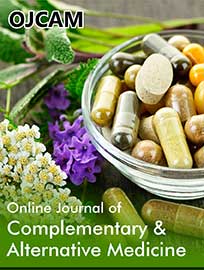 Review Article
Review Article
The Health Implications of Plastic Bioaccumulation and The Potential to Enhance Biotransformation Using Herbal Medicine and Nutritional Supplements
Carina Harkin, Independent researcher, University College Cork, Ireland.
Received Date: January 14, 2020; Published Date: February 27, 2020
Abstract
Plastic is ubiquitous with recent studies having highlighted that plastic is in bottled and tap water and food products including honey, sugar and beer. 3-10 tonnes are estimated to fall on Paris per year. Plastic has recently been shown to be a vector for heavy metal contamination and to cross the blood–brain barrier (BBB). Global concern regarding the health implications is mounting, with the World Health Organisation (WHO) having conducted a risk assessment review of plastics. Whilst knowledge gaps exist, we remain to eat, drink and inhale plastic without knowing what harm it is potentially causing. This paper discusses the scale of global microplastic contamination, the sources and routes of microplastic contamination including inhaling and ingesting plastics, and the potential health implications of plastic bioaccumulation. Research into biotransformation is new and evolving. This paper looks at how plastic is bio transformed and the potential pharmacognostical approaches that have the potential to maximize plastic biotransformation. This paper discusses what is known about how plastic is bio transformed by Phase I cytochrome P450 enzyme group modification and Phase II glutathione, sulphation, glucuronidation and glycine conjugation pathways, and the importance of supporting endogenous antioxidants to assist plastic biotransformation. The paper specifically discusses what is known about how ingested plastics including phthalates and bisphenol A (BPA), and inhaled plastics, including dioxins and furans are bio transformed by these processes and what herbal medicine and nutritional supplementation may maximise plastic biotransformation and address plastic bioaccumulation.
Keywords: Plastic bioaccumulation; Plastic biotransformation; Microplastic; Nano plastic; Microplastics in drinking-water; Microplastic exposure and impacts on human health; Complementary and alternative medicine (CAM); Herbal medicine; Nutritional Supplements; Pharmacognosy
Keywords: Acetyl-Coa: Acetyl Coenzyme A; ALS: Amyotrophic Lateral Sclerosis; ADHD: Attention Deficit Hyperactivity Disorder; BPA: Bisphenol A; BBB: Blood-Brain Barrier; CDG: Caclium D-Glucarate; CAT: Catalase; CDC: Centers For Disease Control And Prevention; CD: Cluster Of Differentiation; CAM: Complementary And Alternative Medicine; Cuzn-SOD: Copper-Zinc SOD; CYP450: Cytochrome P450; DDT: Dichlorodiphenyltrichloroethane; DINP: Diisononyl Phthalate; DIDP: Diisodecyl Phthalate; EDCS: Endocrine Disrupting Chemicals; FSAI: Food Safety Authority Of Ireland; GSH: Glutathione; GPX: Glutathione Peroxidase; GR: Glutathione Reductase; GST: Glutathione S-Transferase; GST Family: Glutathione S-Transferases; GMIT: Galway-Mayo Institute Of Technology; GNRH: Gonadotropin-Releasing Hormone; HSE: Health Service Executive; HPA: Hypothalamic-Pituitary Axis; LGBTQI: Lesbian, Gay, Bisexual, Transgender, Queer Or Questioning And Intersex; BZIP: Leucine Zipper; Mn-SOD: Manganese SOD; MFO: Mixed-Function Oxidase Enzyme; NAC: N-Acetylcysteine; NHANES: National Health And Nutrition Examination Survey; NATS: N-Terminal Acetyltransferases; NDDS: Neurodevelopmental Disorders; NDGS: Neurodegenerative Diseases; NRF2: Nuclear Factor-Erythroid-2-Related Factor 2; PCOS: Polycystic Ovary Syndrome; POPS: Persistent Organic Pollutants; PTS: Persistent Toxic Substances; PAHS: Polycyclic Aromatic Hydrocarbons; PCBS: Polychlorinated Biphenyls; PETE: Polyethylene Terephthalate; SAM-E: S-Adenosyl-L-Methionine; SFN: Sulforaphane; SOD: Superoxide Dismutase; TCR: T-Cell Receptor; TCDD: Tetrachlorodibenzo-P-Dioxin; TEQ: Toxic Equivalent; T2D: Type 2 Diabetes; US: United States; UDP: Uridine Diphosphate; UDPGA: Uridine Diphsphate Glucuronic Acid; UGT: UDP-Glucuronosyltransferase; WHO: World Health Organisation
-
Carina H. The Health Implications of Plastic Bioaccumulation and The Potential to Enhance Biotransformation Using Herbal Medicine and Nutritional Supplements. On J Complement & Alt Med. 3(4): 2020. OJCAM.MS.ID.000567.





